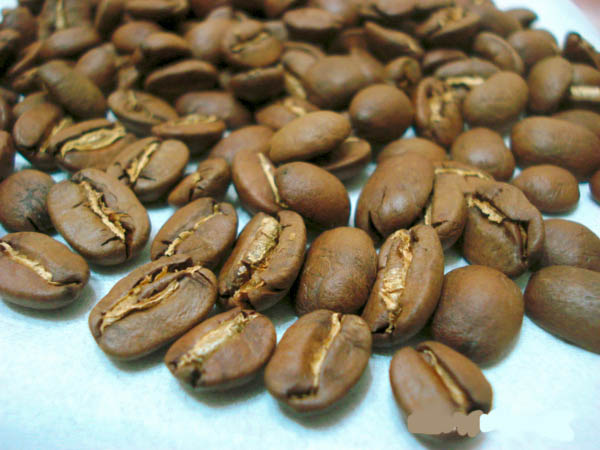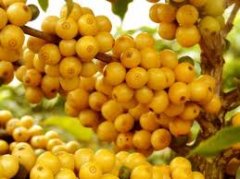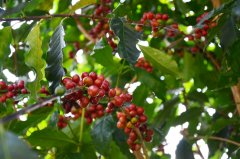The origin of Salvadoran coffee is an important factor in the high quality of Salvadoran coffee.

For professional baristas, please follow the coffee workshop (Wechat official account cafe_style)
El Salvador El Salvador
El Salvador has good elements of coffee cultivation: soil, altitude, climate, and the tradition of varieties has a long history:
The Old World variety bourbon, and the natural mixture of bourbon, Pacas, caturra, and pacamara.
The bourbon species of El Salvador shows a balanced and classic flavor, while Pacamara is full of uncompromising personality.
Traditional beans with dense growth at high altitude are an important factor in the high quality of Salvadoran coffee and perform well even at low altitude.
Coffee cultivation in El Salvador used to be controlled by wealthy families who owned many estates.
After years of civil war and democratic movement, the situation changed slightly, and more and more small and medium-sized farms appeared to produce small batches of high-quality coffee.
On the whole, however, there is still considerable room for improvement.
According to Sweet Maria's,
There is no problem with harvest and fermentation in El Salvador, but the drying process is rough.
Due to poor maintenance of the sun farm, it will usually overheat and affect the quality of coffee.
Salvadoran coffee refers to the coffee produced in the small South American country of El Salvador, where the coffee body is light, aromatic, pure, slightly sour, the flavor is extremely balanced, is a specialty of Central America. With sour, bitter, sweet and other taste characteristics, the best baking degree is moderate, deep.
Salvadoran coffee
El Salvador (ElSalvador) is one of the small countries in Central America, where coffee is light, fragrant, pure, slightly sour and characterized by excellent balance of flavor. It is a specialty of Central America. With sour, bitter, sweet and other taste characteristics, the best baking degree is moderate, deep.
1 El Salvador Coffee-Coffee Origin
In the early 1990s, guerrilla warfare greatly damaged the country's national economy, reducing coffee production from 3.5 million bags in the early 1970s to 2.5 million bags in 1990-1991. The eastern part of the country was most affected by guerrilla warfare, and many farmers and workers were forced to leave the manor. The shortage of funds has led to a sharp drop in coffee production, from 1200 kg per hectare in the past to less than 900kg per hectare today.
In addition, the government imposed an additional 15% tariff on exported coffee in 1986, that is, an additional 15% in addition to the existing 30% tax. Taxes, together with unfavorable exchange rates, have greatly reduced the export of coffee and the quality of coffee.
The government finally realized the great role of coffee in the national economy, such as solving employment, earning foreign exchange and developing agricultural production, so it privatized some coffee export industries in 1990, hoping to increase the income rate of coffee in the export market.
Today, this coffee accounts for 40% of the country's exports. The best quality coffee is exported from January to March, and 35% of the extra hard beans are exported to Germany.
2 Salvadoran coffee
Flavor: balanced taste and good texture
Recommended baking method: moderate to deep, with a variety of uses
Top quality beans: El Salvador SHB
Taste characteristics: sour, bitter, sweet mild and moderate.
Salvadoran coffee ranks side by side with Mexico and Guatemala as producers of Asa and Merdo, and is fighting for the top one or two places in China and the United States with other countries. The highlands of origin are large coffee beans of all sizes, which are fragrant and mild in taste. Like Guatemala and Costa Rica, coffee in El Salvador is graded according to altitude. The higher the altitude, the better the coffee. It is divided into three grades according to elevation: SHB (strictlyhighgrown) = highlands, HEC (highgrowncentral) = mid-highlands, and CS (centralstandard) = lowlands. The best brand is Pipil, which is what the Aztec-Mayan (Aztec-Mayan) called coffee, which has been recognized by the American Organic Certification Society (OrganicCertifiedlnstituteofAmerica).
Important Notice :
前街咖啡 FrontStreet Coffee has moved to new addredd:
FrontStreet Coffee Address: 315,Donghua East Road,GuangZhou
Tel:020 38364473
- Prev

Cold Guatemalan coffee is the best. What's the difference between the seven producing areas of Guatemala?
Professional barista communication please pay attention to the coffee workshop (Wechat official account cafe_style) Vivetna fruit coffee beans Huehuetenango Origin: Guatemala production area: Huehuetenango raw beans treatment: washing treatment: medium roasting degree: medium roasting flavor: medium taste, refreshing, fruity, slightly sour. Vivette Nango is a coffee item suitable for spring taste.
- Next

Why is Guatemalan coffee so delicious? What is the uniqueness of Hua Shen Coffee?
Professional barista communication please pay attention to the coffee workshop (Wechat official account cafe_style) Guatemalan coffee Antigua coffee Antiqua Flora Origin: Guatemala production area: Antiqua raw beans roasting degree: medium roasting degree flavor: medium taste, smooth, floral flavor, slight acid why Guatemalan coffee Antigua producing area
Related
- Detailed explanation of Jadeite planting Land in Panamanian Jadeite Manor introduction to the grading system of Jadeite competitive bidding, Red bid, Green bid and Rose Summer
- Story of Coffee planting in Brenka region of Costa Rica Stonehenge Manor anaerobic heavy honey treatment of flavor mouth
- What's on the barrel of Blue Mountain Coffee beans?
- Can American coffee also pull flowers? How to use hot American style to pull out a good-looking pattern?
- Can you make a cold extract with coffee beans? What is the right proportion for cold-extracted coffee formula?
- Indonesian PWN Gold Mandrine Coffee Origin Features Flavor How to Chong? Mandolin coffee is American.
- A brief introduction to the flavor characteristics of Brazilian yellow bourbon coffee beans
- What is the effect of different water quality on the flavor of cold-extracted coffee? What kind of water is best for brewing coffee?
- Why do you think of Rose Summer whenever you mention Panamanian coffee?
- Introduction to the characteristics of authentic blue mountain coffee bean producing areas? What is the CIB Coffee Authority in Jamaica?

